Abstract
This study was an objective evaluation of the outcome of home confinement, which is still common in Holland, compared with delivery in hospital. To this end, 1,692 women in Groningen were interviewed three weeks after confinement to find out how their pregnancy, delivery and childbed period had progressed according to the place of confinement, and to obtain facts about the morbidity of their babies.
Among women who had opted for home confinement (if allowed) significantly fewer complications occurred during pregnancy, delivery or puerperium than among those who had their babies in hospital. Morbidity was also lower among babies born at home. The study suggests that it is a responsible decision for a normal healthy woman given the right kind of antenatal supervision to have her baby at home with the least risk of complications.
Full text
PDF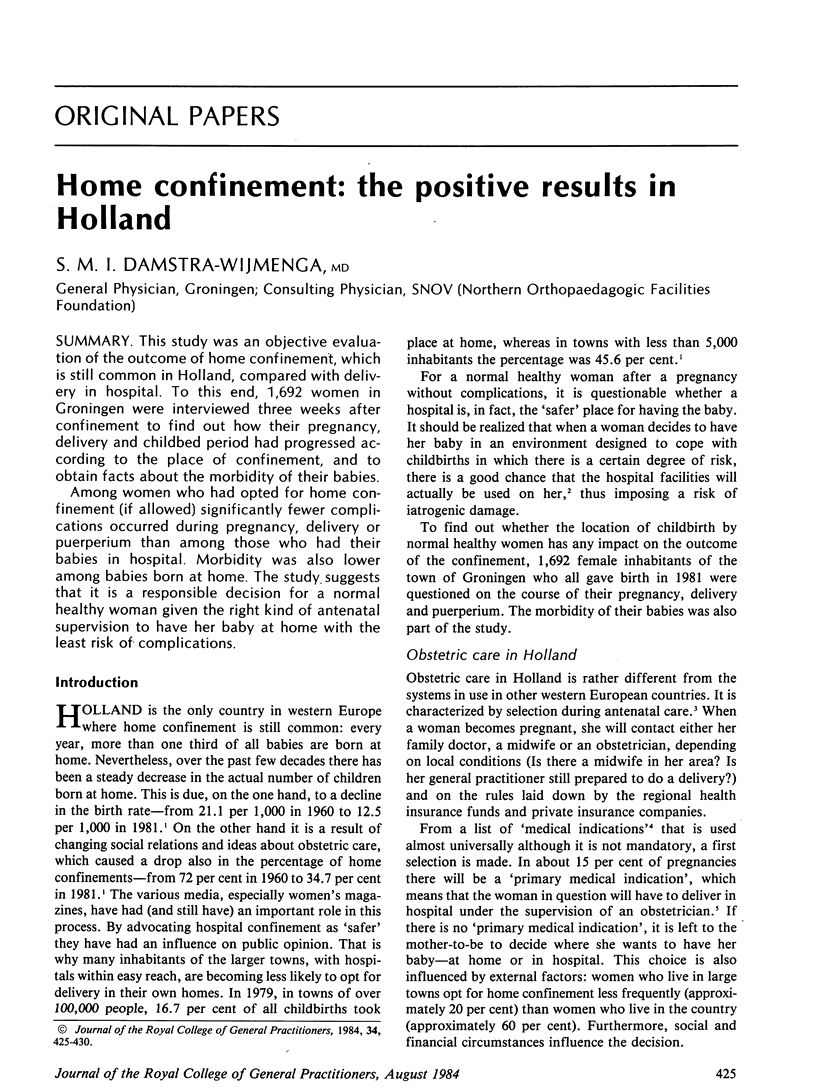
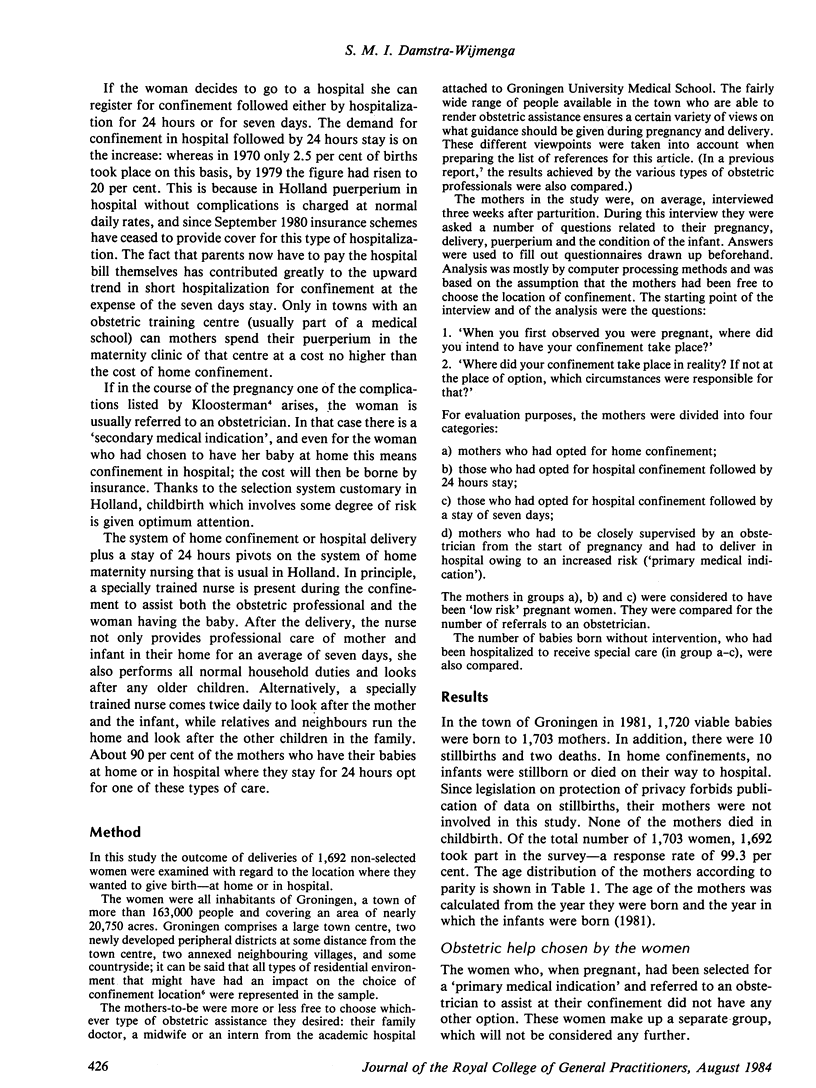
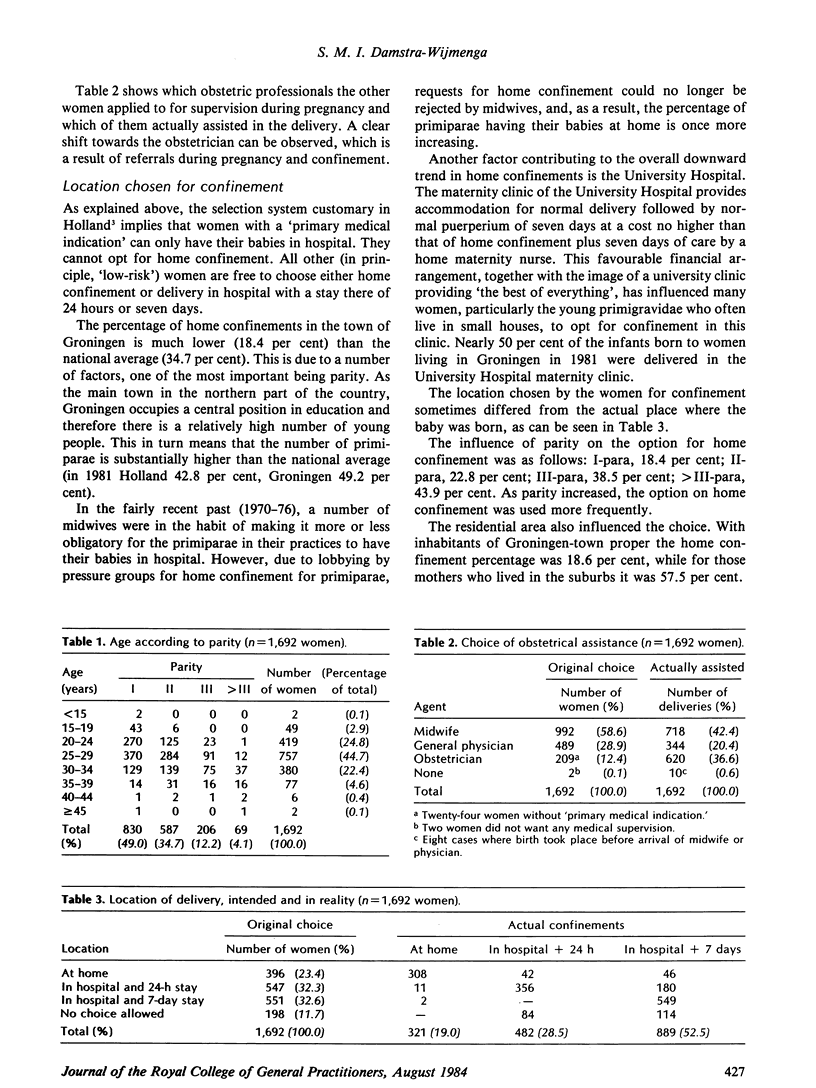
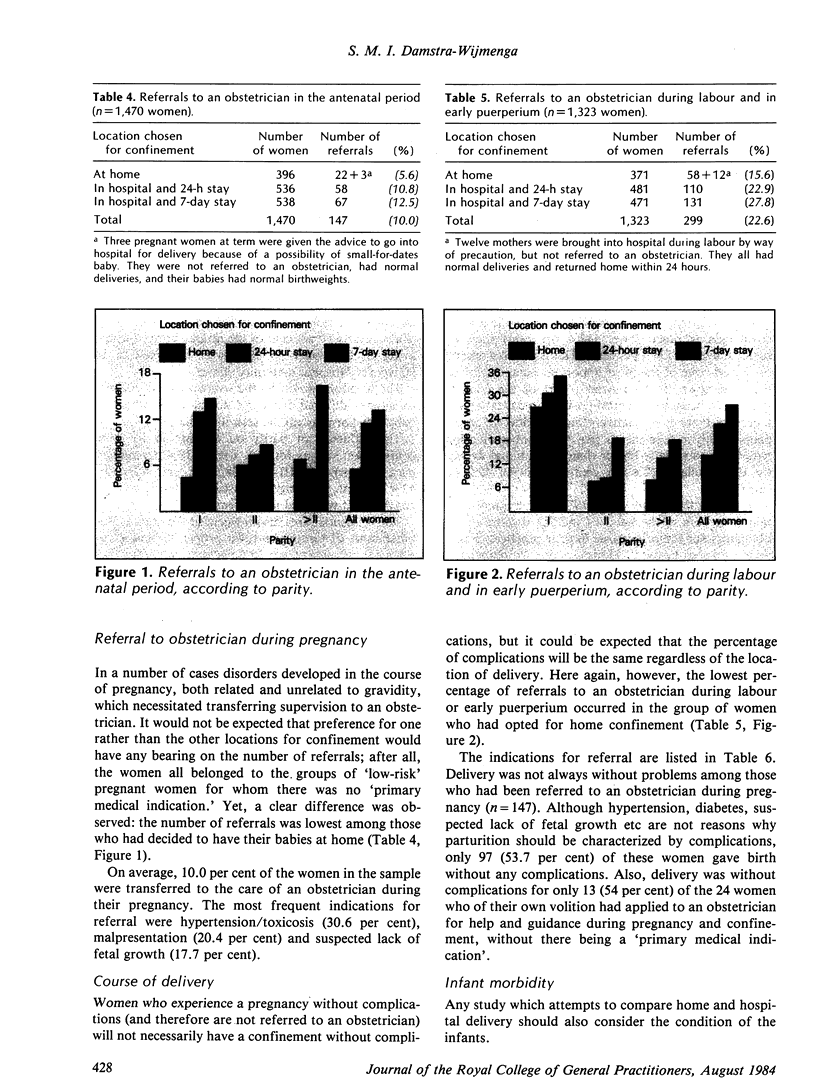
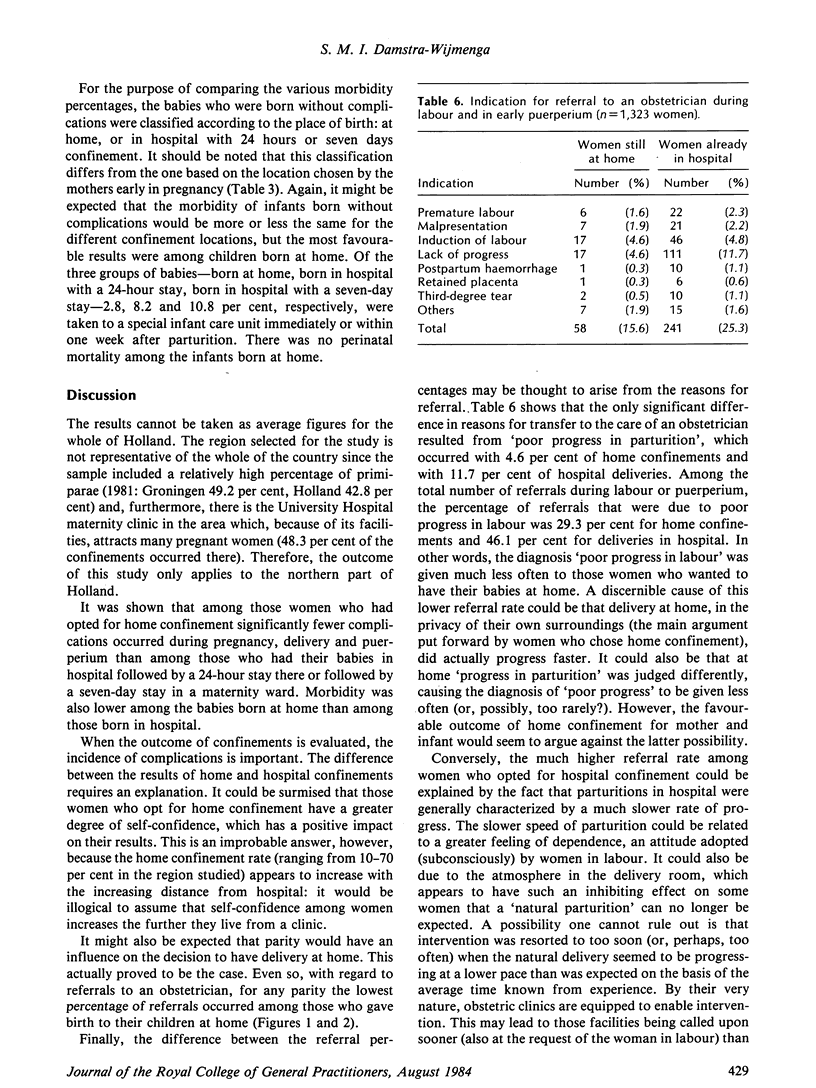
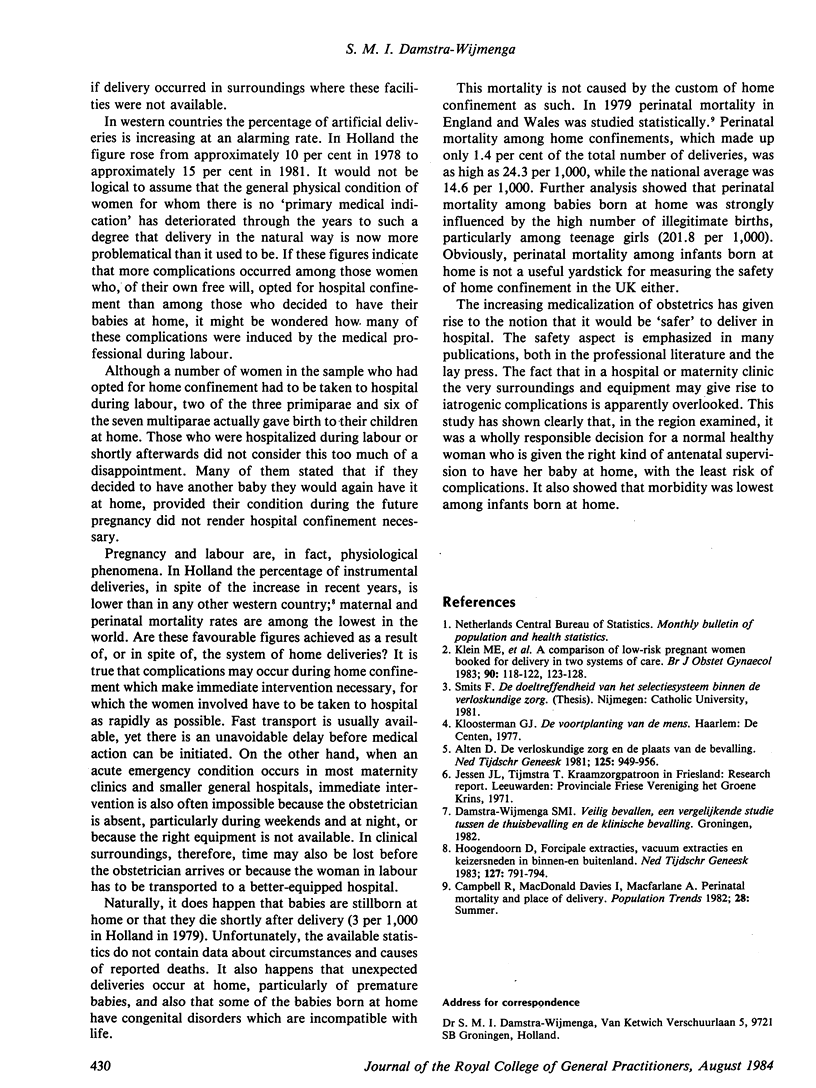
Images in this article
Selected References
These references are in PubMed. This may not be the complete list of references from this article.
- Klein M., Lloyd I., Redman C., Bull M., Turnbull A. C. A comparison of low-risk pregnant women booked for delivery in two systems of care: shared-care (consultant) and integrated general practice unit. I. Obstetrical procedures and neonatal outcome. Br J Obstet Gynaecol. 1983 Feb;90(2):118–122. doi: 10.1111/j.1471-0528.1983.tb08894.x. [DOI] [PubMed] [Google Scholar]
- van Alten D. De verloskundige zorg en de plaats van de bevalling. Ned Tijdschr Geneeskd. 1981 Jun 13;125(24):949–952. [PubMed] [Google Scholar]




